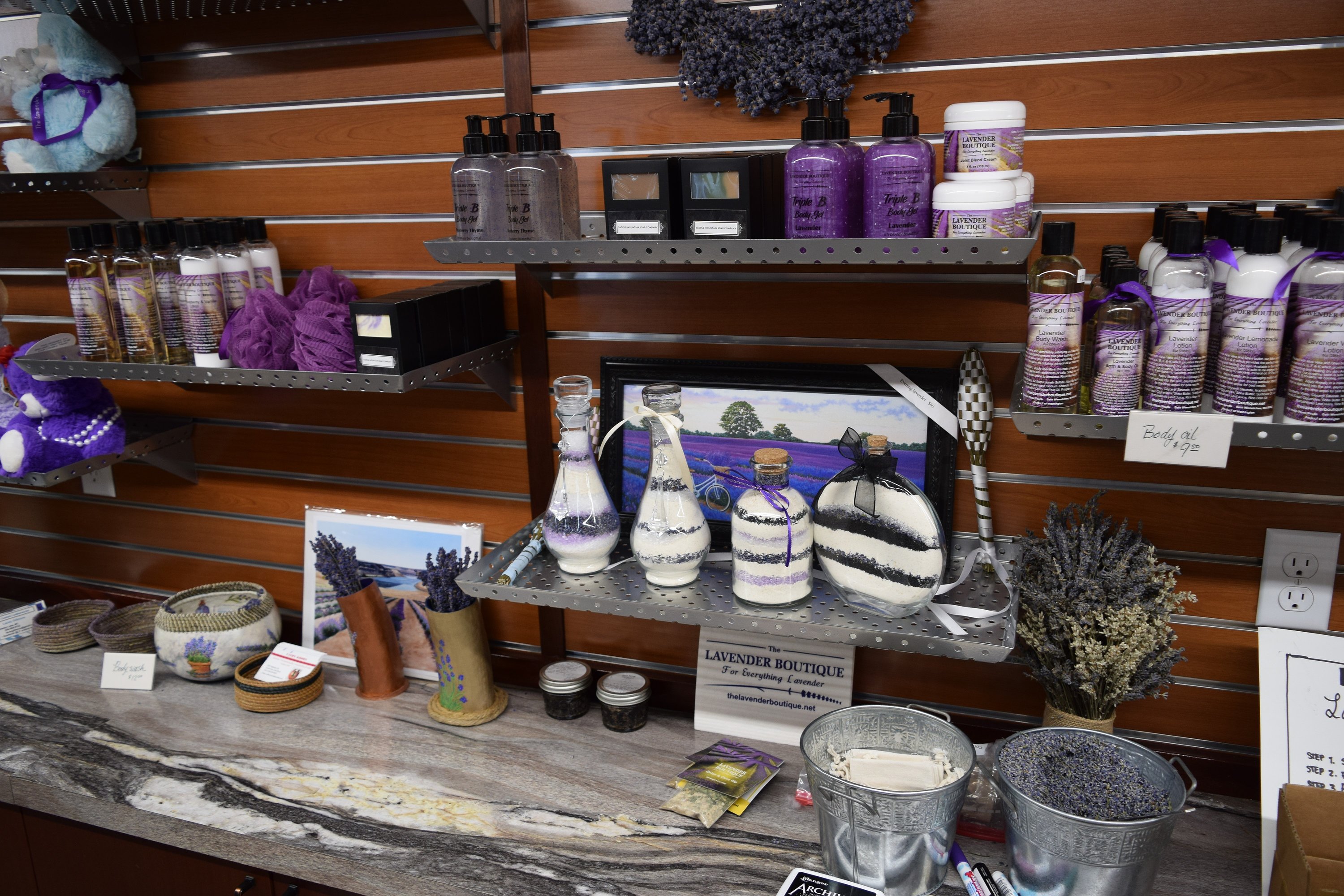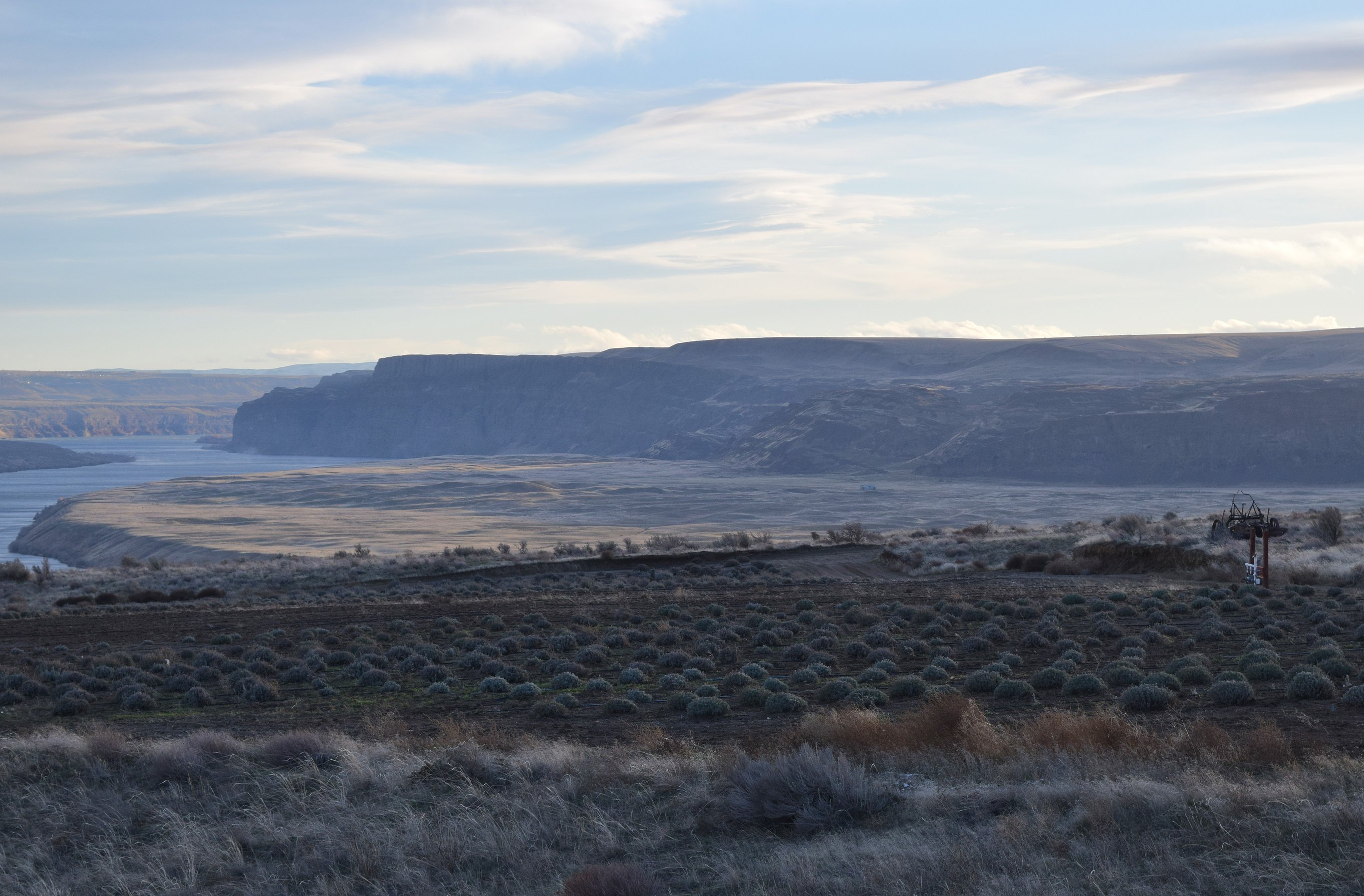Lavender Ranch
QUINCY — Quincy farmer Joseph Downs first started planting lavender at his properties at the Upper Crescent Bar near Quincy and in East Wenatchee in 2015. He now grows more than 20,000 plants on 20 acres.
“We have the farm. It's called Lavender Ranch, and we have over 20,000 plants and 110 different varieties,” Downs said. “One of the reasons why we have so many varieties is that they all bloom at different times, generally. So, depending on our harvest time — it depends on whether we're harvesting for culinary or were harvesting fresh flowers or dried flowers or harvesting for oil — we harvest them at different times.”
Downs said the lavender products he produces for the Lavender Boutique, as well as his more recent culinary lavender products are made from 15 different varieties of lavender plant.
“We have over 85 different health and beauty products … Another thing that sets us apart from the majority of lavender farmers is our culinary line and that's an item of 45 different products,” Downs said. “All of them have a lavender flavor.”
The Lavender Ranch near Quincy also has an event space.
“That section of my enterprise is Lavender Estates, and that is very active at the Crescent Bar farm; we have a facility there. Our slogan for Lavender Estates is weddings, conferences, celebrations and family get-togethers,” Downs said. “I use my farm for different purposes. So there’s always a good day to come to the lavender farm because if you're there in March, you're going to see the daffodils, if you’re there in April, you're going to see the tulips.”
Downs said he started the farm with the venue in mind, which is used by several entities and organizations in nearby communities, such as the Quincy school district, for events.
“We started from scratch. I first got into lavender by propagating. I was working with a former business partner propagating plants, sourcing different varieties, providing them to farmers and we were shipping all over the United States,” Downs said.
Downs also distills lavender plants for essential oils and uses them in his other lavender enterprises, which also include supplying other lavender producers with different varieties or with culinary lavender, lavender for coffee shops in Rock Island and Quincy as well as lavender for nearby mead production.
The unique land situation of two separate farms provides an advantage over other lavender suppliers, he said. There are about 10 days difference between the two climates of the properties, Downs said. That allows them to adjust shifts and focuses as needed.
Downs said he wanted to be able to be dedicated to his industry.
“There’re a lot of lavender farmers out there, and some of them kind of use it as a hobby. I didn't want to do it as a hobby,” he said. “The best way to have people come to your farm is because they seek you out because you're identified as a professional.”
In addition to professionalism, Downs said pricing is important to staying successful.
“My product is priced accordingly so that I can stay in business. I mean, I could see an analogy of Mrs. Jones around the corner who happens to have 10 lavender plants, and she's just happy that someone wants them, and she doesn't want to waste anything,” Downs said. “So, she sells her bundles, 300 stems for three dollars,” he said.
Downs can’t do that because he wants repeated and sustainable business. He charges what is needed to stay in business and support his customer base and his staff.
Downs said he has two full-time employees and employs seasonal workers generally from May to August to harvest the different lavender varieties.
“All of my products are trialed for a minimum of six months before they go to the general population. I have a great network of friends and product testers,” he said.
Downs said he wants to make sure customers are successful in keeping the lavender they purchase fresh for as long as possible, so they will come back to the farm.
“We market it. We test it. We get the prices for it to see what it can be. We also need to check what happens if another farm wants to buy wholesale. Are we charging enough, so that we can still make some money on the wholesale and not only have to be restricted to just retail? It's a difficult one for people. Sometimes they're only wholesale or they’re only retail."
Downs does both retail and wholesale.
“Not very many are both because when you wholesale something at half the price of the retail, they come and pick up 25 or 30 of something and you're like, ‘If I sold all that (at retail) it would have been twice as much money.’ But the point about that is they came and bought that all in one go,” Downs said. “So you spent three hours in the kitchen making that. You could spend three hours in the kitchen and now have to spend six hours to sell it, by going to the farmer's market. So it balances, but you need to make sure you price things accordingly."
Downs said it is difficult to pick which of his various successful lavender ventures he enjoys the most.
“It's the one that I happen to be doing,” Downs said.
Gabriel Davis may be reached at [email protected]. Download the Columbia Basin Herald app on iOS and Android.





